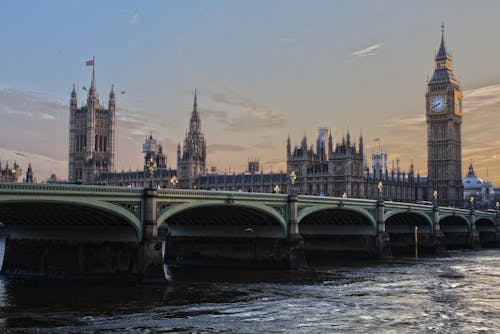Chancellor has left it too late to raid Pensions Tax-Free Cash on Budget Day
23 Mar 2022
 24% of Boomers aged 58 to 75 that have taken their Tax-Free Cash have put it into the bank to be eroded by rising inflation.
24% of Boomers aged 58 to 75 that have taken their Tax-Free Cash have put it into the bank to be eroded by rising inflation.
The Pension Commencement Lump Sum (PCLS), more commonly known as your pension Tax-Free Cash (TFC) lumpsum, allows those with a personal pension to take up to 25 per cent of its total value out tax-free from age 55. There is some speculation that on Spring Budget Day on Wednesday 23rd March, the Chancellor Rishi Sunak will announce plans to phase out or even scrap tax-free cash as he searches for ways to recoup HM Treasury losses incurred during the pandemic and pay for anticipated new costs associated with placing stringent economic sanctions on Russia as it continues to prosecute its war on Ukraine.
So, financial technology company Dunstan Thomas decided to release early data from a new major national study into the finances of the UK’s Baby Boomers aged 58 to 75. Looking at what Boomers have been doing with their Tax-Free Cash lumpsums to date, the tech firm found that 24 per cent of them had already extracted all of their allowed Tax-Free Cash lumpsums, and a further 19 per cent had taken some of their Tax-Free Cash allowance out. In total 43 per cent have already used the Pension Tax-Free cash facility.
Of the Boomers that have taken some or all their pension Tax-Free Cash, 24 per cent had put the cash pay-out straight in the bank, where it is now being eroded by inflation. The Consumer Prices Index (CPI) is tipped by experts to reach 7.9 per cent next month (Source: Bank of America Merrill Lynch’s UK Watch). The UK national average interest rate for retail banks’ savings accounts is currently at 0.06 per cent (Source: Bankrate).
 A further seven per cent of Britain’s Boomers used their Tax-Free Cash to supplement their income to cover everyday bills, while just over four per cent decided to splurge the cash on a good holiday. Other Boomers who have taken their pension Tax-Free Cash seemed to have made more sensible choices
A further seven per cent of Britain’s Boomers used their Tax-Free Cash to supplement their income to cover everyday bills, while just over four per cent decided to splurge the cash on a good holiday. Other Boomers who have taken their pension Tax-Free Cash seemed to have made more sensible choices
- 13 per cent used it to pay down unsecured debt including credit card debts
- 10 per cent used it to pay for home improvements
- 9 per cent to make additional home mortgage repayments
- 8 per cent invested that cash lumpsum into stocks and shares
- 8 per cent used it to help purchase an investment property
Nearly four per cent used the money to help family members get on the property ladder and just over one per cent used it to subsidise the cost of a major life event of family members such as a wedding or honeymoon. Nearly one per cent put the funds into savings for school or university fees for family members.
Adrian Boulding, Director of Retirement Strategy at Dunstan Thomas, remarked:
“The Chancellor has probably left it too late to raid pensions Tax-Free Cash in order to balance his books, now that 43 per cent of Baby Boomers have already accessed this much-loved feature.
“Our research shows that when people retire, they often use their pensions’ Tax-Free Cash to improve their home, buy a new car, have a great holiday, or pay down the mortgage. All of these offer a shot in the arm to the economy at a time when consumer spending may otherwise be falling in the face of inflationary pressures and global uncertainty arising from the Russia/Ukraine conflict.
“However, it’s a real shame that of the Baby Boomers that have accessed the money already, nearly a quarter are simply putting it in the bank where the interest they earn may be negligible and cannot hope to counteract the negative impact of rising inflation.
“For those with no compelling need to clear high interest or unsecured debts, it makes far more sense to keep the money invested in their pension, growing tax-free, perhaps in investments with strong ESG (Environmental, Social and Governance) ratings. That way, funds can be put to work to help the planet or society at large.”
Boulding of Dunstan Thomas added:
“Baby Boomers will be more likely to keep their money invested in their pension if the Chancellor uses his Spring Budget to confirm that Tax-Free Cash will remain as a long-term feature of the pensions landscape.”
Dunstan Thomas’ study of more than 1,200 Baby Boomers which was carried out in February 2022 also discovered that 38 per cent of Britain’s Boomers are now planning to retire after the State Pension age, currently set at 66 years old. One reason why Britons are delaying their retirements is that more of us are finding our anticipated retirement income from pensions and savings inadequate, the study finds.
by Adrian Boulding, Director of Retirement Strategy at Dunstan Thomas.
Adrian Boulding
Director of Retirement Strategy at Dunstan Thomas
023 9282 2254
enquiries@dthomas.co.uk